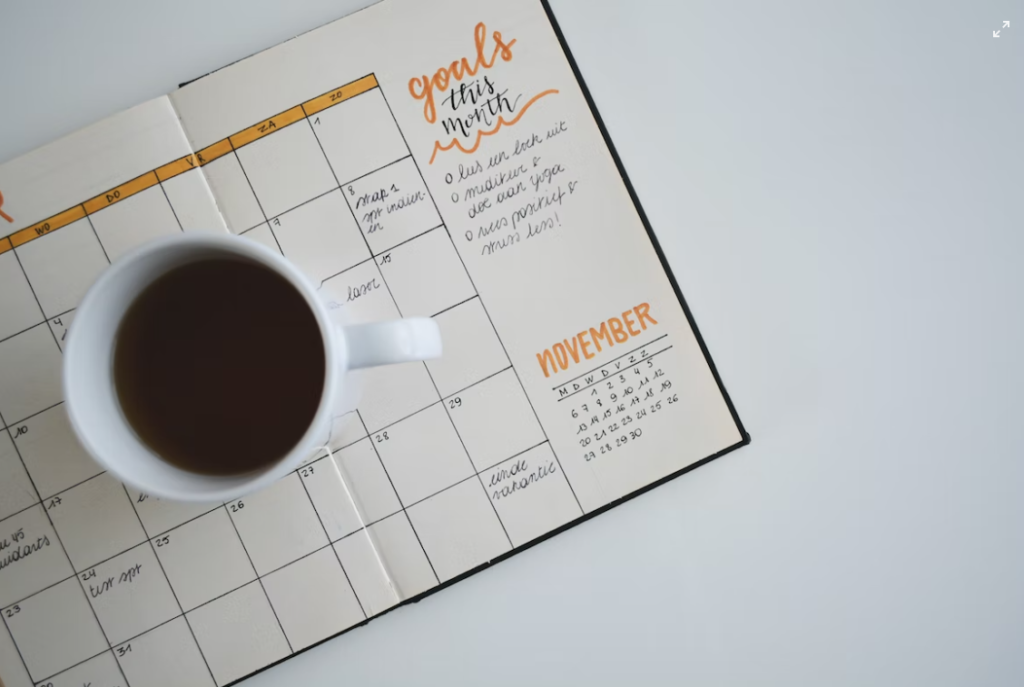Self Talk Golf
Learn about self-talk in golf and some techniques to help you improve your game.

Selfpause Affirmation App
Download the app to get 1,000’s of affirmation meditations and everything you need to write, record and listen to your own.
Whether you’re a beginning golfer or a seasoned pro, there are some techniques you should use to improve your game. These techniques include learning positive and negative self-talk, setting goals, and using your words. Here’s a quick look at three of these techniques. The first is simple: learn to speak to yourself in a positive way!
Positive self-talk

Practicing positive self-talk while playing golf is an excellent way to improve your game. The key is to learn how to listen to your inner voice and identify the negative thoughts that can impact your game. This way, you can program your unconscious mind to think positively and work towards your goal.
Negative self-talk can make you doubt yourself, and it can even lead to poor performance. This cycle of negative self-talk can be stopped by focusing on the present. If you use negative self-talk while playing golf, you’re likely to be more nervous, play tentatively, and feel more doubt in your ability. Eventually, this can lead to poor performance and a spiral of negative thoughts. But using positive self-talk while playing golf is an excellent way to avoid this cycle.
You can start by recording yourself while playing golf. Write down the phrases you say to yourself during your rounds. Pay special attention when your self-talk becomes negative, and jot them down. This way, you can identify the situation or statement that caused your self-talk to become negative.
Once you’ve practiced using positive self-talk while playing golf, you can apply it to your game. You’ll notice the difference after the first few rounds. While pessimistic self-talk focuses on what you can do to improve your game, optimistic self-talk focuses on the positive aspects of each shot. You’ll be surprised how often you can replace negative thoughts with positive ones.
Negative self-talk

Most golfers are unaware of their negative self-talk. By consciously changing your self-talk, you can improve your golf game. To start, you need to learn to identify negative statements and replace them with more positive ones. By doing so, you will build your confidence, which will have a positive impact on your game.
The best way to change negative self-talk when playing golf is to listen to your inner voice. By repeating positive messages to yourself, you will program your unconscious mind to accept them. By doing this, you will feel confident in your golf swing. This will increase your confidence and your chances of hitting a good shot.
It is natural to feel disappointment and frustration when you hit a bad shot. It is normal to feel this way because we are competitive. But you do not have to let that emotion take over your golf game. Acknowledge the emotion and move on to the next shot. Positive self-talk will help you to move on from a bad shot.
In the same way, negative self-talk can ruin your confidence and performance on the course. Even the top performers know how important it is to be aware of what they say to themselves. Negative self-talk can damage your game by sinking deep into your subconscious. It will make your past bad experiences more likely to repeat themselves. Furthermore, it can cause you to have a lower self-esteem and make you play worse.
Goals

Self talk is an important component of golf game strategy. You may find it useful to have a few phrases that you repeat to yourself during a game. These phrases can help you in a variety of situations, including after bad shots. When developing these phrases, you should consider the emotions they will evoke in you. For example, you may want to use a loving and compassionate self-talk after a bad shot.
Having positive thoughts during a round of golf can keep you motivated. You can start by reflecting on the past rounds in which you’ve had difficult rounds. Then, write down a list of positive self-talk statements. Using these statements will help you focus on the things that are working and avoid focusing on things that aren’t.
In order to improve your golf game, you need to control your negative self-talk. Often, golfers play a mental game called “What if.” They don’t realize that this kind of negative self-talk is sabotaging their game. However, the good news is that it’s possible to change your self-talk, both inside and outside the game.
Goal-setting

Goal-setting is crucial for golfers and should be a key component of your game. Every great player has a dream of achieving something great, and setting goals keeps you motivated and on track. For example, Tiger Woods set a goal to beat Jack Nicklaus’ golf records, and reminded himself every night to work towards it. Just as in life, every champion has a dream, and sticking to it is the key to their success.
Goal-setting in golf should be done in stages. The first step is to choose your overall goal, and the second step is to set specific targets and milestones for achieving it. There are several ways to do this, from keeping score to figuring out your performance in a game. There are many tools available to help you with your goal-setting process, but the key is to keep your mind focused on one specific goal and to review your progress regularly.
First, set your golf goals in a way that you will be excited about. Then, evaluate them and reformulate them as needed. Once you have a goal in place, celebrate it with yourself. Golfers should consider setting goals for the season and even for individual golf games. While many players create season-long goals, it is also useful to set short-term goals for achieving specific results.
Another way to set goals is through process goals. These are not specific outcomes, but instead are focused on steps towards the desired target. Examples of process goals are working on driving distance, eliminating slice, or improving your putt average. Those goals should be achievable and should be accompanied by a measurable plan to ensure success.
Automatic thoughts
Golfers are often challenged by negative automatic thoughts. They can affect their golf game and mental state. Leading psychologists recommend replacing negative thoughts with positive ones. This approach is proven to improve golfers’ mental health. It has also been shown to improve their golf scores. But how do you change your automatic thoughts?
By learning to identify and manage automatic thoughts, you will improve your golf game physically and mentally. This will also boost your confidence. The more confident you are, the more you’ll enjoy the game. This will make it easier to overcome obstacles. If you’ve noticed yourself saying “don’t think about that” and then hitting the ball into the hazard, you may have an automatic thought in your head.
Goal-setting statements

When golfers want to improve their game, they need to learn how to control their self-talk. By using encouraging statements and instructional statements, they can create a positive internal dialogue and focus on performance skills. These statements may include saying things like, “stay focused,” “watch the front of the ball,” or “focus on the hole.”
As golfers, we can always improve, but we need to set goals for ourselves. When we set a goal, we feel more accomplishment and joy and it gives us more motivation. Moreover, when we achieve a goal, it feels like the time and money we invested are worthwhile. Setting goals is essential to developing the right mindset and improving our game.
If we set a specific goal and have an attainable time frame, we are more likely to achieve it. However, if we set a vague goal, it is highly likely that we will not meet it. After all, life is always going to get in the way. Moreover, if we make vague goals, we are likely to be discouraged. Therefore, we should set specific goals that are specific to our personality and can be achieved.
Golfers often talk about their goals throughout the season, but few of them actually write them down. It’s a good idea to write down these goals on paper and keep them near your practice area. This way, you can track your progress. And don’t forget to celebrate your achievements!
Our Top FAQ's
Self-talk can be used effectively in golf to improve performance and mental toughness by focusing on specific goals and reinforcing positive thoughts and behaviors. For example, a golfer might use self-talk to reassure themselves that they have the skills and knowledge to execute a shot, or to stay calm and focused under pressure. Some specific techniques that golfers can use include:
- Identifying and repeating positive affirmations or mantras
- Focusing on the present moment and letting go of past mistakes or future worries
- Using visualization techniques to see themselves executing successful shots
- Talking through their shot routine out loud to stay focused and on track
To identify and change negative self-talk patterns, a golfer can try the following strategies:
- Pay attention to the thoughts and beliefs that come up during rounds of golf, and write them down in a journal
- Notice if any of these thoughts are negative or unhelpful, and try to reframe them in a more positive way
- Seek support from a coach, friend, or mental health professional if negative self-talk is persistent or overwhelming
- Practice mindfulness techniques, such as deep breathing or focusing on the present moment, to help manage negative emotions and thoughts
Some examples of positive self-talk statements that golfers can use on the course include:
- “I am confident in my abilities and can execute this shot successfully.”
- “I am in control of my thoughts and emotions, and can stay focused on the task at hand.”
- “I am capable of making great shots, and I trust in my swing.”
- “I am a strong and talented golfer, and I believe in myself.”
Self-talk can be used to manage emotions and stay focused during a round of golf by helping a golfer to stay present and focused on the task at hand, rather than getting caught up in negative emotions or distractions. Some specific techniques that can be helpful include:
- Using positive self-talk statements to refocus attention on the present moment and on specific goals
- Taking deep breaths or using other relaxation techniques to manage stress and anxiety
- Setting aside time for mindfulness or meditation practice to develop mental toughness and focus
To incorporate self-talk into a golfer’s practice routine, they can try the following strategies:
- Identify specific goals or areas of focus for each practice session, and use self-talk to reinforce those goals
- Practice using positive self-talk statements before, during, and after practice sessions
- Seek feedback from a coach or mentor to help identify areas for improvement and specific self-talk strategies that may be helpful
- Incorporate mindfulness or meditation practices into the practice routine to help develop mental toughness and focus
